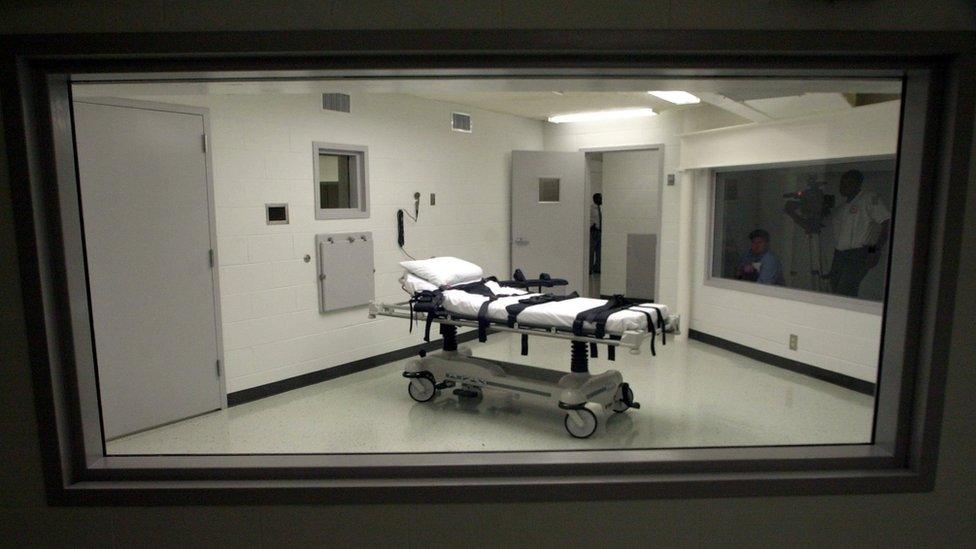Richard Glossip: Oklahoma halts execution 'to check drugs'
- Published
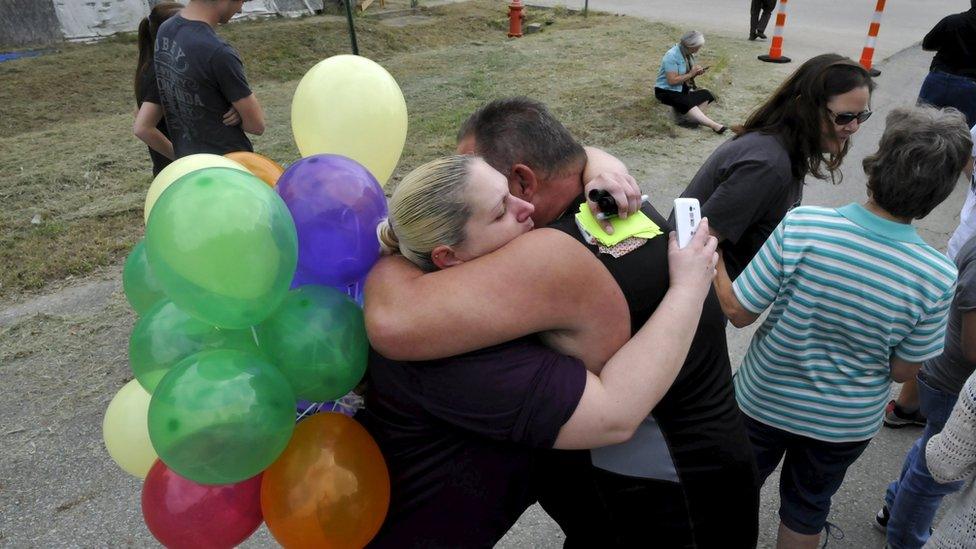
Supporters of Glossip celebrated the news
A man convicted of ordering his boss's murder has had his execution postponed at the very last minute, due to uncertainty over the lethal drugs.
Richard Glossip looked certain to die by injection in Oklahoma on Wednesday afternoon after the US Supreme Court rejected his appeal.
But Oklahoma Governor Mary Fallin has asked for more time to check if the drugs are compliant with state rules.
Pope Francis had urged her to halt the execution.
His archbishop had written to her and urged her to act to commute the sentence, but she said she did not have the authority to do so.
An hour after Glossip was due to be put to death, Ms Fallin announced that she was rescheduling the execution for 6 November.
She said prison officials had received potassium acetate for use in the execution, as one of the three drugs used, but state guidelines only list potassium chloride.
Department of Corrections Director Robert Patton said he requested the stay of execution "out of due diligence".
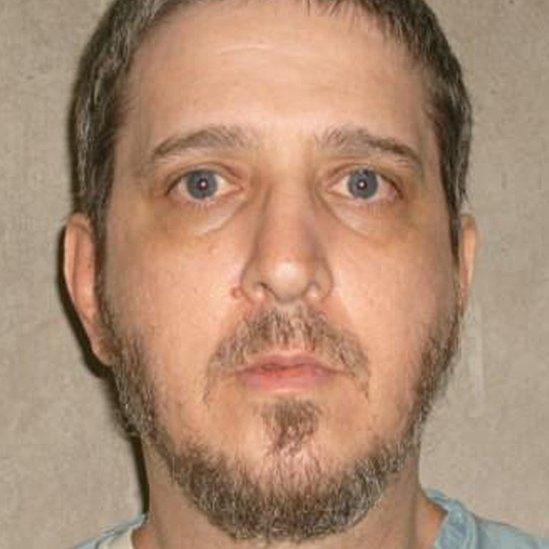
Glossip has refused plea deals because he says he is innocent
Glossip's boss Barry Van Treese, the owner of the Oklahoma City motel, was beaten to death in 1997.
His colleague Justin Sneed was convicted of the killing but said Glossip had ordered him to carry it out.
Glossip and his family have maintained his innocence for nearly 20 years, saying that Sneed acted alone.
He was first convicted in 1998 but that was overturned in 2001, only for Glossip to be convicted again three years later.
In the most recent appeals, his lawyers said they had an affidavit from another inmate who said Sneed admitted to setting Glossip up.
British billionaire Richard Branson took out a full-page ad in The Oklahoman newspaper on Wednesday that argued Glossip is innocent.
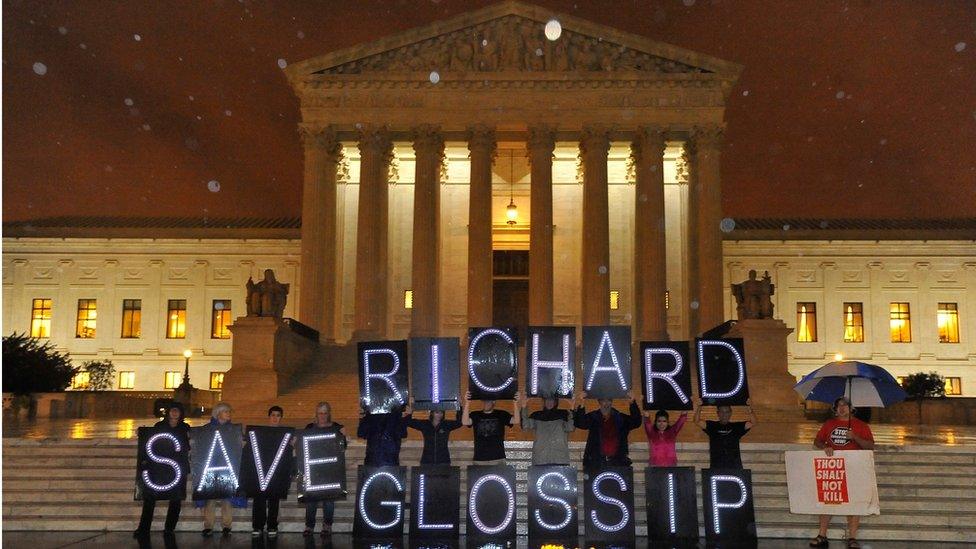
Anti-death penalty activists lobbied to stop Glossip's execution
Executions have been delayed recently in the US amid problems buying drugs as many firms have refused to sell them.
Oklahoma's drugs procedures have been under scrutiny since a flawed execution in April 2014.
Clayton Lockett struggled for 43 minutes before eventually dying, after an intravenous line was improperly placed.
The Pope had also intervened in the case of a woman in Georgia, but Kelly Gissendaner was put to death on Tuesday.
During the pontiff's visit last week to the US, he urged Congress to abolish the death penalty.
- Published3 September 2015
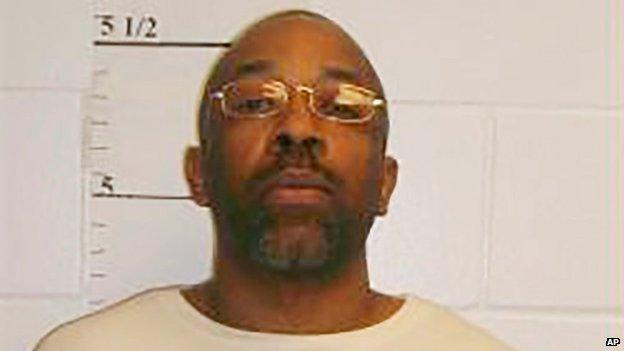
- Published8 June 2015
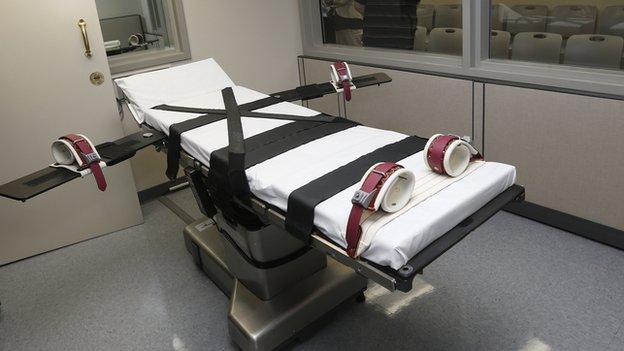
- Published23 May 2015
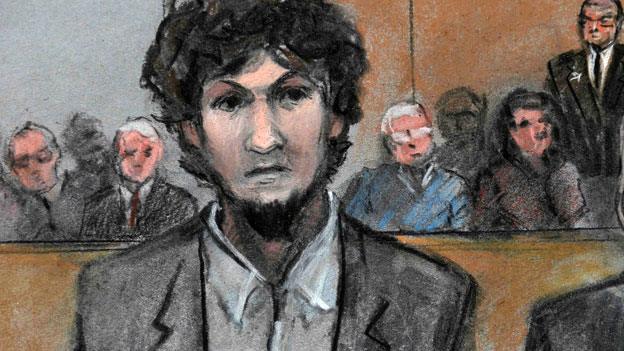
- Published9 September 2015
